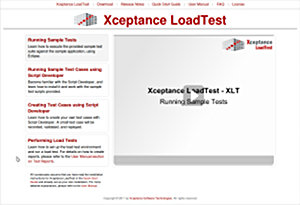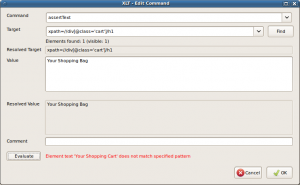 We just published four brand-new screencasts about XLT 4.0, its features, and how to work with them. This is our first attempt to use screencasts as a way of documenting our software. They do not replace the written documentation, of course, but they do provide a quick and easy way to become familiar with XLT.
We just published four brand-new screencasts about XLT 4.0, its features, and how to work with them. This is our first attempt to use screencasts as a way of documenting our software. They do not replace the written documentation, of course, but they do provide a quick and easy way to become familiar with XLT.
You might be especially interested in the new Script Developer. Our main feature of XLT 4.0.
The script developer is our approach to write and execute scripts efficiently within Firefox. It is a tool to quickly automate web application, share scripts without the hassle of complicated installations, while maintaining full control over possible other ways to execute scripts. The script developer lays the foundation to run test within the browser, execute scripts during builds, create and run test-driven tests, and, if required, export scripts into Java to unleash the power of a modern programming language.
Enjoy the screencasts and of course feedback is always welcome.


